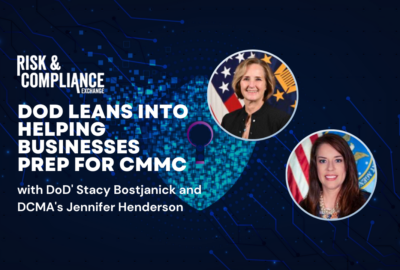Think tank points to valuable Recovery Act lessons
The IBM Center for the Business of Government released a report examining the lessons from the execution of the stimulus over the last three years.
By Esther Carey
Special to Federal News Radio
Federal executives should focus more on communicating and sharing ideas more regularly with their peers at other agencies to improve the outcomes of their programs. This is one of the nine lessons that came from the implementation of President Barack Obama’s American Recovery and Reinvestment Act.
The IBM Center for the Business of Government released a report examining the lessons from the execution of the stimulus over the last three years. Through case studies and interviews, the authors developed a list of nine steps for how executives could work more efficiently under any circumstances.
Agencies faced a challenge in the wake of Obama’s signing of the Recovery Act. The White House expected agencies to implement high-dollar programs in a short amount of time. From the pressure of that process came a learning opportunity for all federal leaders, the IBM report stated.
The nine steps are:
- Set deadlines to create a sense of urgency. The authors said this helped “create focus and clarity about true priorities.” In some cases, agencies began making plans before the Recovery Act passed, knowing their time would be limited.
- Create dedicated project teams. The administration required each agency to name someone to lead the implementation of its respective Recovery Act programs. Several agencies, in turn, dedicated staff members to temporary implementation teams.
- Use technology to track progress. Agency staffs used off-the-shelf software and new, Web tools as a launching point for creating IT systems. By keeping the foundation simple, the agencies saved time, the authors found.
- Streamline grant and contract processes. During the preparation stage, agencies reviewed their standard processes to reduce the time it takes to implement the programs. This resulted in agencies redesigning many grant and contract processes, which led to a more efficient system.
- Build in transparency and accountability. Since the Recovery Act demanded a high level of transparency, agencies had to work together under the oversight of the Recovery Board. The law also encouraged agencies to develop the practice of reporting regularly on their activities.
- Identify risks and manage them. Wasteful spending was a prominent danger during the quick implementation of the Recovery Act. Thus, the Recovery Board was on the lookout for potential problems in this area.
- Foster real-time learning. Throughout the implementation process of the Recovery Act programs, managers discussed with others what was working well, and this let them learn from one another’s mistakes during the process.
- Create horizontal networks. Federal executives saw the process as an opportunity to work with other agency leaders. The resulting networks helped each individual agency do its job better by developing new partnerships and collaboration.
- Embrace adaptation as a mindset. It is important for executives to stay flexible in their work. The Recovery Act forced them to focus on new ways to get things done. This is an attitude which should be maintained throughout their work, the authors said.
The report emphasized these items work best when taken together and used in combination with one another. The authors say instituting all nine could help executives complete their mission efficiently during both day-to-day efforts and in pioneering new programs.
Esther Carey is an intern at Federal News Radio.
RELATED STORIES
GAO examines Recovery Act contract award process
Seven lessons from the Recovery Act
Recovery Board is model for governmentwide oversight efforts
Copyright © 2024 Federal News Network. All rights reserved. This website is not intended for users located within the European Economic Area.





